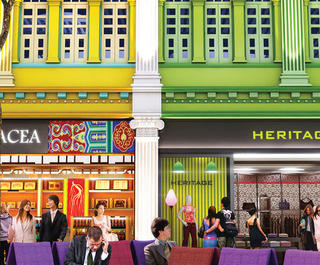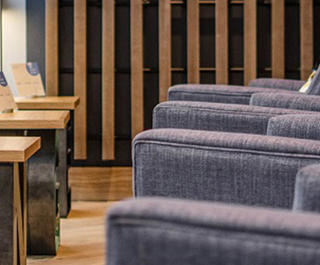Words by Chloe Hamilton
Google is hoping its Translate app will break down the language barrier once and for all, with the addition of a voice-translation mode.
The app’s latest update offers immediate spoken-word translation between dozens of languages, meaning users can converse with waiters in far flung restaurants, or liaise with hotel staff without stumbling over complicated consonants clusters, or indecipherable characters. The new conversation mode acts as a near-real-time translator, letting travellers carry out conversations with someone speaking a different language.
The app also features a camera translation mode, which translates words found in images, allowing app users to decode signs or menus simply by tapping the app’s “Word Lens” feature, holding their smartphone camera over the text, and reading the translation, which appears in real time.
It’s hard to believe the Google Translate app isn’t operated by magic. As I hover my phone over the Starter menu at Russian restaurant Mari Vanna in Knightsbridge, the English translation shimmers into view on my screen, revealing delicacies such as ‘caviar from eggplants’ and ‘salad with veal’. I order with ease, before flipping over to the Mains to see what other tasty treats Russia has in store for me.

With the app, I’m able to be adventurous, try new things, and converse easily with the waiter to see what he recommends. There’s no doubt it would be a useful tool on holiday, so long as we remember to look up from our smartphones occasionally to truly appreciate the sights of whichever country we’re visiting.
There are some limitations, however. Although the conversation mode currently works in 38 different languages, the photo translation can currently only convert into English, French, German, Italian, Portuguese, Russian, and Spanish.
There is also a fear that linguistic nuances might be lost in translation. "For basic things, it might be very useful,” says Ariane Bogain, a senior lecturer in modern foreign languages at the University of Northumbria. "But it is never going to pick up the nuances, the cultural references or the humour.”
This article was written by Chloe Hamilton from The Independent and was legally licensed through the NewsCred publisher network.
Image: Getty









